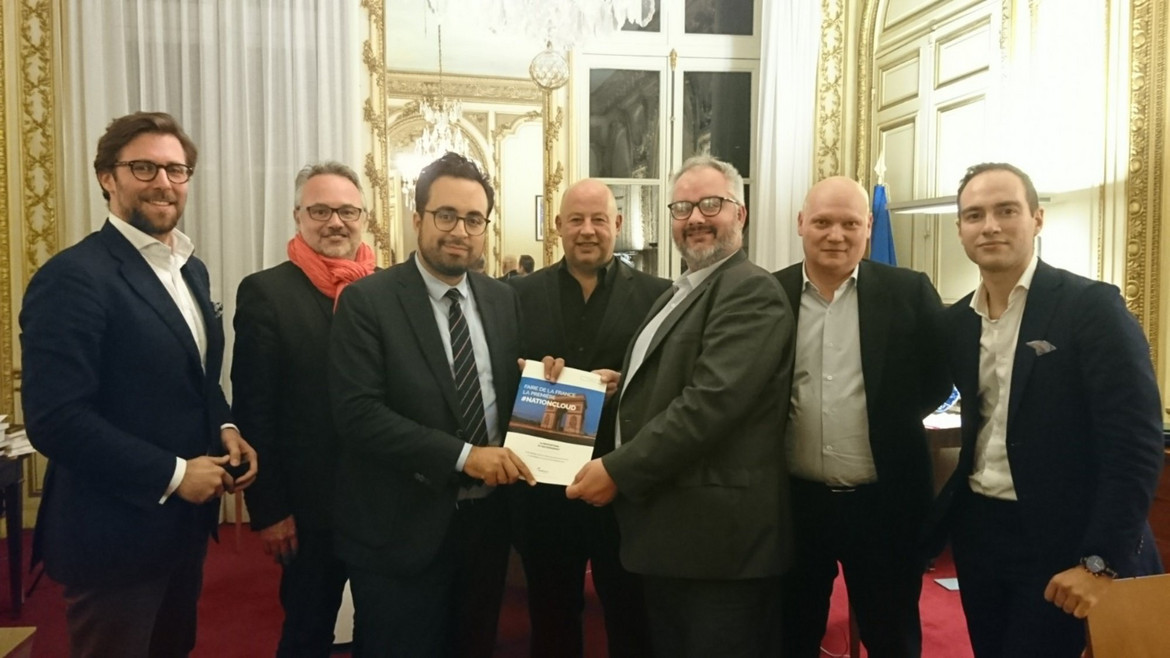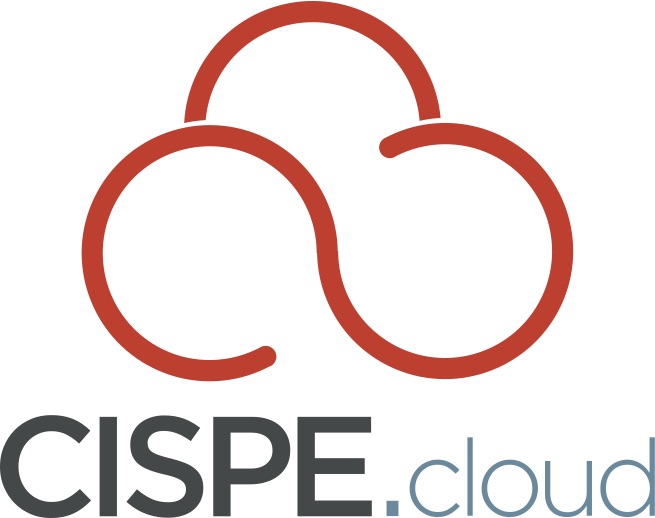Moving the French Administration into the Cloud
Within the space of one year, the French government position around cloud computing totally changed towards building a real Cloud First policy to support the digital transformation of the entirety of state policies. Here is the story of this journey, told by Alban Schmutz, Vice-President of EuroCloud France, who drove this work with the French ecosystem, the administration, and policy makers.

© MR1805 | istockphoto.com
CEOs, industry observers, academics, and governments are increasingly convinced that the cloud is much more than a substitute for traditional IT methods. Indeed, it is regarded as a real revolution, democratizing cutting-edge technology, making IT teams more agile, enabling savings, and lowering barriers to entry.
Just as CEOs are now turning to digital solutions, so must the French government take some major decisions on how to shape its administration as a whole.
The first step was made at the beginning of 2014 with the 2014-2017 Cloud Plan, an integral part of the 34 New Industrial France plans. This plan established 10 priorities for developing the cloud sector in France. Several of these priorities have been met. Other initiatives, including some conducted by DINSIC (France’s interministerial digital, IT, and communications department / Prime Minister’s Office), are also worth mentioning. These include hackathons organized within the administrations, the creation of the first state entrepreneurs, and policies for implementing open data in government administrations.
Thanks to these initiatives, over the past few years the cloud has become mainstream and IT systems managers are now convinced of its potential benefits. Nevertheless, its use was still very limited and measures that could facilitate its expansion are just starting to be implemented.

Office of the French Minister of Digital Affairs: Receiving the #CloudNation report on 25 October 2017, (Lionel Benatia (AWS), David Chassan (Outscale), Mounir Mahjoubi (Secrétaire d’État pour le Numérique), Pierre-José Billotte (Président d’EuroCloud France), Alban Schmutz (OVH), Jules-Henri Gavetti (Ikoula) and Cédric Mora (Blue DME))
On 25 October 2017, EuroCloud France proposed 10 proposals to the French Government to make France the first #CloudNation. Based on these proposals, dozens of meetings were organized in the following months inside the French administration between the CIOs, and between the French administration and the French cloud ecosystem. As a result, cloud computing was recognized as one of the 4 pillars of the digital transformation of French public administration by the French government in June 2018.
On the 4th July 2018, during the 3rd #CloudWeekParis, the French Minister of Digital Affairs announced a 3-step approach to drive the IT systems of all French administration into the cloud. Each IT investment will soon have to go for an “Internal Cloud”, a “Private Hosted Cloud”, or to the “Public Cloud”. The “doctrine” regarding the security requirements of the workloads and the financing model of cloud investments is to be published in early 2019, to help civil servants accelerate the move into the cloud.
The road will remain long, and France still needs to catch up with countries which started the “Cloud First” move earlier [1]. Hurdles are still not completely overcome, including reviewing the way OPEX (Operational Expenditures) may replace CAPEX (Capital Expenditure) in public accounting. The good news is that the initial experiences / proof-of-concepts of French public organizations have strongly demonstrated the advantages of this technology: agility, improved security, cost reduction, and increased capacity for innovation.
EuroCloud France took the position that the French State should be the first to take measures, primarily to meet its own needs: According to an EY report, modernizing government services through digitalization could lead to an annual saving of €12 billion within five years for the French State.
But Cloud First policies are not only important in France. This should be a general movement across Europe. States are also driving forces behind the whole ecosystem. The International Data Corporation (IDC) forecasts that global spending on cloud services could surpass 141 billion dollars in 2019. Between 2017 and 2025, the global cloud market is expected to multiply by more than 10. Apart from the direct benefits for cloud service providers, there are also digital services companies who will benefit from this pull factor. Not only leading French companies such as Capgemini and Atos, both among the top 10 globally, but also companies of all sizes across the country will continue to develop and create jobs. Take Linkbynet and D2SI, to mention just two.
With this government move, France expects and may have put itself in the position to help drive Europe forward. The success of the French startup scene and its rejuvenated international image opens up a world of opportunities. FrenchTech is a springboard for this. This is the chance for France to boost the European digital agenda by highlighting the cloud as a priority for all European states, within a strengthened framework of security and data protection. At the moment, there is little harmonization in this matter.
Most of the measures proposed by EuroCloud France in the #NationCloud report were designed to be implemented within 9 months. Some have not yet been adopted by the French government, with an undertaking to take care of them within 24 months. Nevertheless, major measures have been taken, including an internal decision of this cloud policy for investments, which is expected to be published by the Prime Minister in November 2018.

CC0 Pixabay.com
A European framework of Data Protection, Reversibility, and Security has been clearly identified as a facilitator for developing a Cloud First policy in the public sector. This should be based on the CISPE Data Protection Code of Conduct, and Art. 6 of the new Free Flow of Non-Personal Data Regulation to enforce reversibility on the cloud market. Added to this, the working group launched by the European Commission to develop a real single security certification scheme based on previous work of the German C5 (European Secure Cloud) and the French SecNum Cloud should make it easier to drive cloud policies across Europe.
In Germany, the Trusted Cloud Initiative, supported by the German Ministry of Economic and Energy, paves the way in a similar direction to facilitate cloud adoption based on good practices and frameworks on such key topics (security, free movement of data, privacy). EuroCloud Germany (the cloud network associated with the eco Association) already helps to build trust and confidence in digital ecosystems through this initiative.
2019 will be the time to launch the first initiatives at scale for the French government. 2019 will be also a key year for much larger initiatives in Europe, including action plans of the forthcoming European Commission (EC) after the European elections, the new EC InvestEU public funding framework where cloud is equally identified with the 5G mobile networks, and the application of the new European data space (General Data Protection Regulation + Free Flow of Non-Personal Data Regulation).
But lots of things still need to be done. The cloud computing industry is a key facilitator of the green revolution, as well as open data. Therefore, EuroCloud France also believes that open-data publication of energy consumption data from small and large data centers of administration, local authorities, and public agencies would allow us to compare and make significant progress in energy efficiency regarding the delivery of digital services.
We hope that all European governments and institutions will do their duty and join in the smart revolution – a revolution that is already in full swing. This requires courage and trust. It is up to private-sector actors to build up trust by promoting the best international standards that ensure data protection and the security of systems entrusted to them.
If we do not start right now to prepare for the future through public and private sector collaboration, the technological tsunami could soon overwhelm us. But we have all the organizations, energy, and tools to succeed. Now it’s time for administrations to align with the pace of the new world.
[1] United States (2011): The United States government launched a Cloud First policy. United Kingdom (2013): The British government introduced a Cloud First policy and set up the buyers and suppliers network required by this strategy. Norway (2013): https://www.regjeringen.no/en/dokumenter/Cloud-computing-strategy-for-norway/id2484403/sec3. Australia (2014): The Australian Cloud Computing Policy (2014) “aims to drive a greater take up of cloud services by federal government agencies by adopting a ‘cloud first’ approach”. Singapore (2015): The government of Singapore became a leader in cloud policies. Its 2015 brochure on cloud computing provides an overview of strategies for using the cloud. Philippines (2016): The government of the Philippines published the fourth draft of its Cloud First policy. Bahrain (2017): https://tinyurl.com/ybf4gp4k. India (2017): GI Cloud initiative: http://meity.gov.in/content/gi-cloud-initiative-meghraj
Alban Schmutz is Vice-President of EuroCloud France, Vice-President Public Affairs at OVH, and Chairman of CISPE (Cloud Infrastructure Services Providers in Europe, cispe.cloud). He has led various key taskforces in the cloud, including the French Cloud Plan (2014-2017), the CISPE Data Protection Code of Conduct (2016-), and the SWIPO IAAS Switching and Porting Code of Conduct (2018-). He is also a member of various boards, including the Systematic Competitiveness Cluster, the SystemX Institute for Research and Technology, the Alacrite Startup accelerator, Yncrea Engineering School, inter alia.
Please note: The opinions expressed in Industry Insights published by dotmagazine are the author’s own and do not reflect the view of the publisher, eco – Association of the Internet Industry.






